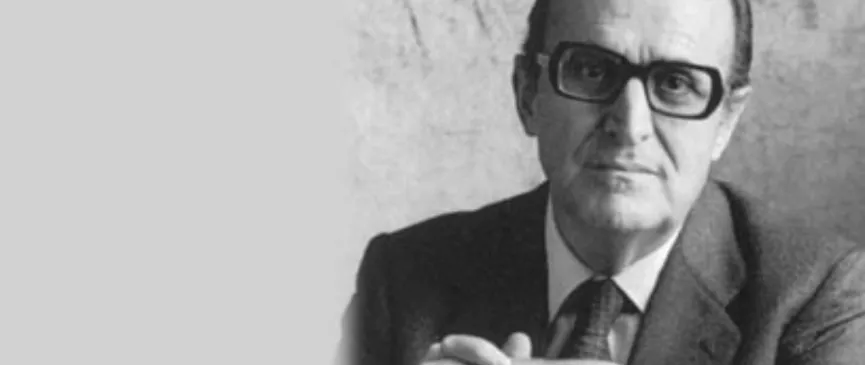Main content
Enrique Fuentes Quintana Prince of Asturias Award for Social Sciences 1989

The intellectual author of the Spanish tax reforms of 1978, Enrique Fuentes Quintana (Carrión de los Condes, Palencia, Spain 1924 - Madrid, Spain, 2007) he played a decisive role in the improvement of tax equity and the efficiency of the Spanish economic system, encouraging greater economic openness, revitalisation and freedom. He also made a valuable contribution to the agreement between economic and trades-union forces, negotiated in the Moncloa Pacts.
Professor of Public Finance and Tax Law and ex-deputy vice- president of the government for Economic Affairs, he was educated in his home town and in Madrid, where he entered the old San Bernardo law faculty. When the faculty of Economics and Political Science was founded, he studied both degrees simultaneously, graduating at the age of 21.
In 1945 he began as an associate lecturer in the department of Political Economy of the University of Madrid law faculty; two years later he began his cooperation with the Institute of Political Studies, in which he participated as lecturer in Spanish Economy until 1962. In 1948 he obtained his doctorate in law with a thesis on the Keynesian theory and its possible application to the Spanish economy; he also obtained a doctorate in Economics and Political Science. A year later he passed the selection examination for the Technical Service of the Ministry of the Exchequer.
In 1951 he joined the government´s Special Economic Advisory Service ("Cuerpo Especial Facultativo de Técnicos Comerciales del Estado"); two years later he was appointed as director of the Analysis Service of the Ministry for Commerce, taking charge of the journal "Información comercial española". From 1955 to 1957 he ran the courses in economics at the "Menéndez Pelayo" University. In 1956 he obtained the chair of Politcal Economics and Public Finance at the University of Valladolid and, two years later, he gained the post of Professor of Commerce, Economics and Political Sciences at the University of Madrid. In that year he also took part in a project for income tax, and in 1959 he participated in preparing the National Plan for Economic Stabilization. During the period 1960-68 he represented Spain on the Political Economy Committee of the OECD, within which he formed part of a working party on practices which restricted competition.
Fuentes Quintana was designated as Director of the Institute of Tax Studies of the Ministry of the Exchequer in 1969; during his term, which ended in 1976 due to his disagreements with the Minister for the Economy, Villar Mir, he established the journals "Hacienda pública española" and "Crónica tributaria", and he drew up, in 1973, the "Informe sobre el sistema tributario español", which was the basis for the process of tax reforms begun in 1977.
In 1977 he was designated as a senator by the King and the President of the Government (Prime Minister), Adolfo Suárez appointed him as Minister for the Economy and deputy vice-president for Economic Affairs, a post from which he resigned a year later due to disagreements with other ministers. Shortly after his resignation he became chairman of the prime minister´s group of economic advisers. In 1981 he was elected as chairman of the Social Security Rationalization and Improvement Committee. When he left active politics he returned to his teaching work at the Complutense University. In 1988 he was one of the founders of the Madrid Free School of Law and Economics.
His work as a researcher and university professor has concentrated on the field of public finance. A member of the Royal Academy of Political and Moral Sciences since 1975, he published important works on the theory of tax systems and tax reforms. He was likewise the author of an excellent manual entitles "Hacienda Pública". He was one of the great promoters of the theories of Richard Musgrave and Frist Neumark in Spain. He holds the Grand Cross of Alfonso X el Sabio and the Grand Cross of the Order of Carlos III.
End of main content
